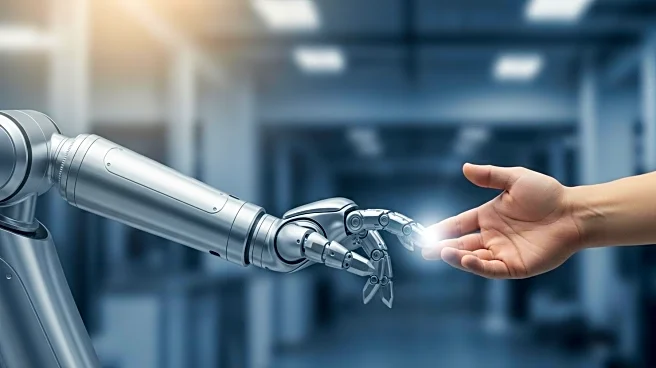What is the story about?
What's Happening?
Artificial intelligence is increasingly reshaping the workforce, prompting concerns about which jobs are vulnerable to automation and which remain secure. According to experts, roles that require empathy, judgment, and physical skills are less likely to be replaced by AI. Jobs in public service, emergency response, healthcare, and law are considered safe due to their reliance on human interaction and regulatory requirements. Conversely, repetitive knowledge work, such as transcription and scheduling, is at high risk of automation. AI is expected to augment rather than replace certain roles, transforming them rather than eliminating them entirely.
Why It's Important?
The integration of AI into the workforce has significant implications for various industries and employment sectors. Jobs requiring human trust, regulation, and physical presence are likely to remain secure, offering stability to workers in these fields. However, roles involving routine tasks are increasingly susceptible to automation, potentially leading to job displacement. Employers must strategically plan for the future, determining which roles require human presence and which can be automated. This shift necessitates adaptation and reskilling for workers, as well as careful investment decisions by companies to align with technological advancements.
What's Next?
As AI continues to advance, the workforce will need to adapt to these changes. Employers are advised to categorize roles that require human presence and those that can be automated, ensuring strategic workforce planning. Workers may need to focus on developing skills that are less susceptible to automation, such as those involving empathy and physical dexterity. The ongoing evolution of AI technology will likely lead to further transformations in job roles, requiring continuous adaptation from both employees and employers.
Beyond the Headlines
The ethical and cultural dimensions of AI's impact on the workforce are significant. The potential displacement of jobs raises concerns about economic inequality and the need for policies that support affected workers. Additionally, the reliance on AI for decision-making in critical roles may lead to debates about accountability and trust in technology. Long-term shifts in employment patterns could influence societal norms and expectations regarding work and human interaction.
















